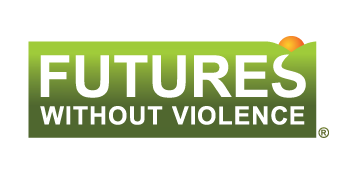Trans/GNC? In a relationship? Caring Relationships, Healthy You
How are things feeling?
Do my partner(s):
- Support me and respect my choices?
- Support me in spending time with friends or family?
Do I:
- Feel comfortable talking about my feelings, sex, and other impotant things with my partner(s)?
- Support my partner(s), their independence, and their identities?
These are some elements of healthy relationships, which can contribute to good physical and mental health.
Everyone deserves to have partners who respect them and listen to what they want and need. Ask yourself:
- Do I have concerns about the way I am being treated?
- Do I have concerns about the way I am treating my partner(s)?
- Is my gender identity and expression respected?
Unhealthy: Do you or your partner...
- Threaten to out the other person’s gender identity, sexual orientation, HIV or immigration status to friends, family or at work?
- Refuse to recognize the other person’s name, pronoun, identity, or preferred language? Or say that the other is not a “real” man or woman?
- Control the other’s money or spending freedom?
- Fetishize or exoticize the other’s identity or body without consent? Or, pressure the other person to do something sexual they didn’t want to do?
- Destroy/hide the other person’s clothing, prosthetics, accessories, makeup or mobility/accessibility aid?
- Ridicule the other for how their body looks or force them to change their appearance? Or say that no one will ever love them because they are trans/GNC?
- Restrict the other person’s access to medicine (hormones, anti-anxiety/depression, PrEP/PEP, substance replacement therapy) or health visits?
- Threaten to take away or hurt the other’s child(ren)?
Actions like these can be harmful for your emotional and physical health. Help is available.
You are not alone
Abuse and/or domestic violence occurs in all kinds of relationships.
The fact that it happens often does not make it okay. You deserve to be in a relationship that is supportive and feels good. In addition to local resources, many people find support within their community: friends, family, cowokers or neighbors.
Is your relationship affecting your health?
- Does your partner restrict your access to hormones, doctor visits, health insurance, trans-focused support groups, or friends?
- Do you engage in cutting or other forms of self-injury as a way to cope?
- Have you experienced homelessness as a result of relationship issues or stress?
- Have you noticed a change in your appetite, weight, or sleeping patterns?
- Has your relationship made you feel depressed or anxious? Have you thought about or attempted suicide because of your feelings?
- Are you drinking, smoking or using drugs in order to cope with what is going on in your relationship?
- Do you have other health issues that can be worsened by chronic stress?
In addition to friends or family, the resources on the back of this card can help you make a plan to talk to your provider about how your relationship could be affecting your health.
A plan the works for you:
With the help of a trusted friend or advocate, you could...
- Take a look at FORGE’s trans-specific Safety Planning Tool (see back of this card), which could help you to reduce your risk of harm within your relationship and take care of yourself.
- Come up with a plan to talk your health provider about what’s going on in your relationship and things you may be doing to cope so they can support you and your health.
National, confidential hotlines can connect you to local resources and provide support 24/7 via phone, text, or online chat:
Suicide Prevention Lifeline | suicidepreventionlifeline.org | 1-800-273-8255
The Trevor Project | Crisis line for LGBTQ Youth | thetrevorproject.org | 1-866-488-7386
National Domestic Violence Hotline | thehotline.org | 1-800-799-SAFE (7233) | text “START” to 88788
FORGE | safety planning for trans survivors | forge-forward.org | Trans-specific safety planning tool: https://forge-forward.org/resource/safety-planning-tool/
Transgender Law Center | transgenderlawcenter.org | 1-415-865-0176 x 1308
National Coalition for Anti-Violence Programs | ncavp.org
Free, anonymous safety aid: myplanapp.org
Low cost healthcare and sexual health information: bedsider.org
National LGBT Institute on IPV: https://lgbtqipvinstitute.org/resources-for-survivors/
